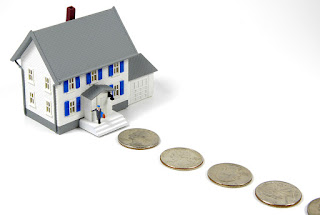If you are seriously planning to buy a home anytime soon, then the first thing that should be on your bucket list is to get your credit ratings in order. Once you clean up your credit report, identify, pay off and close most of your credit cards, the next thing you need to do is shop for a mortgage. Following are the preliminary steps that you need to follow in order to obtain a mortgage:
1.Get Pre-Qualified:
Getting pre-qualified is the first step of the mortgage process. In order to get pre qualified, you meet a lender and provide him information about your income, assets and debts. Based on that information, the lender will provide you with a rough estimate of how much money you can borrow. The entire pre-qualification process is informal as the lender does not verify the information that you provide and doesn’t even charge you a fee. Neither does he formally agrees to provide the loan amount, you get pre-qualified for.
However, while the pre-qualification is not a guarantee of your loan getting approved, it does provide you with a general idea of the amount lenders will agree to give you as a mortgage. This allows you to look for the properties that fall within your budget.
2.Get Pre-Approved:
The pre-approval process is more or less the same as the pre-qualification process. The only difference being that pre-approval is more formal. The lender officially confirms your ability to take a mortgage by checking your credit rating and verifying your financial and employment information. He also charges a fee for pre-approving you and provides you with a written commitment that you are eligible to borrow a certain amount of money as mortgage.
Having a pre-approval strengthens your ability to buy a home as sellers give preference to the offers made by pre-approved buyers. This is simply because of the fact that pre-approved buyers have proved that they can actually afford to purchase the house.
3.Finalizing a Lender:
Mortgage banks, real estate agents, online lenders and mortgage brokers are all great sources of obtaining a mortgage. No single source of mortgage provides the perfect product for all kinds of shoppers, but knowing the pros and cons of all of them will help you in choosing the lender that is right for you.
•Mortgage Brokers: Brokers help more people obtain mortgage loans than any other source. The benefits of hiring a broker are that they have access to large number of lenders and they can shop the marketplace and compare the deals offered by various lenders, on behalf of the client. They can be extremely useful if you are looking for an unconventional type of loan or have damaged credit.
On the other hand, the downside of working with brokers is that their goals are different than yours and they can sometimes get you a bad deal to increase the amount of their commission. Also, brokers don’t work for free and sometimes the fee charged by them can be a bit high.
•Banks: Banks are the traditional source of mortgage funding. If your local bank, where you have your savings and salary accounts, is offering you a good interest rate and alluring terms, then there is no reason to not choose them. However, if it is not offering both, then there are many other banks in town whom you can approach.
The only negative aspect of working with the banks is that they offer a limited number of mortgage options and they are generally not that flexible when it comes to fees.
•Real Estate Agents: Real estate agents often introduce their clients to quality private lenders. As they are in the business of selling houses, it is natural that the agents know a lot of mortgage lenders. Many homeowners prefer to work with a lender suggested by their real estate agent instead of shopping for loans themselves. However, working with a private lender, suggested by your agent, may also offer only a limited number of mortgage programs.
•Online Lenders: Shopping for mortgages online has gained immense popularity in the past few years, due to the plethora of benefits that it offers. The major benefits of shopping for mortgages online are that it is quick, convenient and allows you to contact and compare the options provided by multiple vendors simultaneously.
You don’t have to leave the comfort of your home and you can shop at any time of the day. You are no longer bound by the business hours. Even if you eventually take a loan from a brick and mortar establishment, the plethora of data gathered from comparing vendors online will provide a wealth of information that will be crucial in attaining good mortgage terms.
The Bottom Line
Getting pre-approved is necessary for making sellers seriously consider your offer. When it comes to shopping for mortgage, no method is right or wrong and every lender has some pros and cons. However, it is imperative that you plan in advance and shop carefully in order to obtain the best deal that suits your financial needs.
Want to stay updated on Real Estate & Mortgage industry, follow us on Facebook, Twitter & LinkedIn. Or if you need any advice regarding home loans, feel free to contact All Western Mortgage Lending at 702-850-2790.





